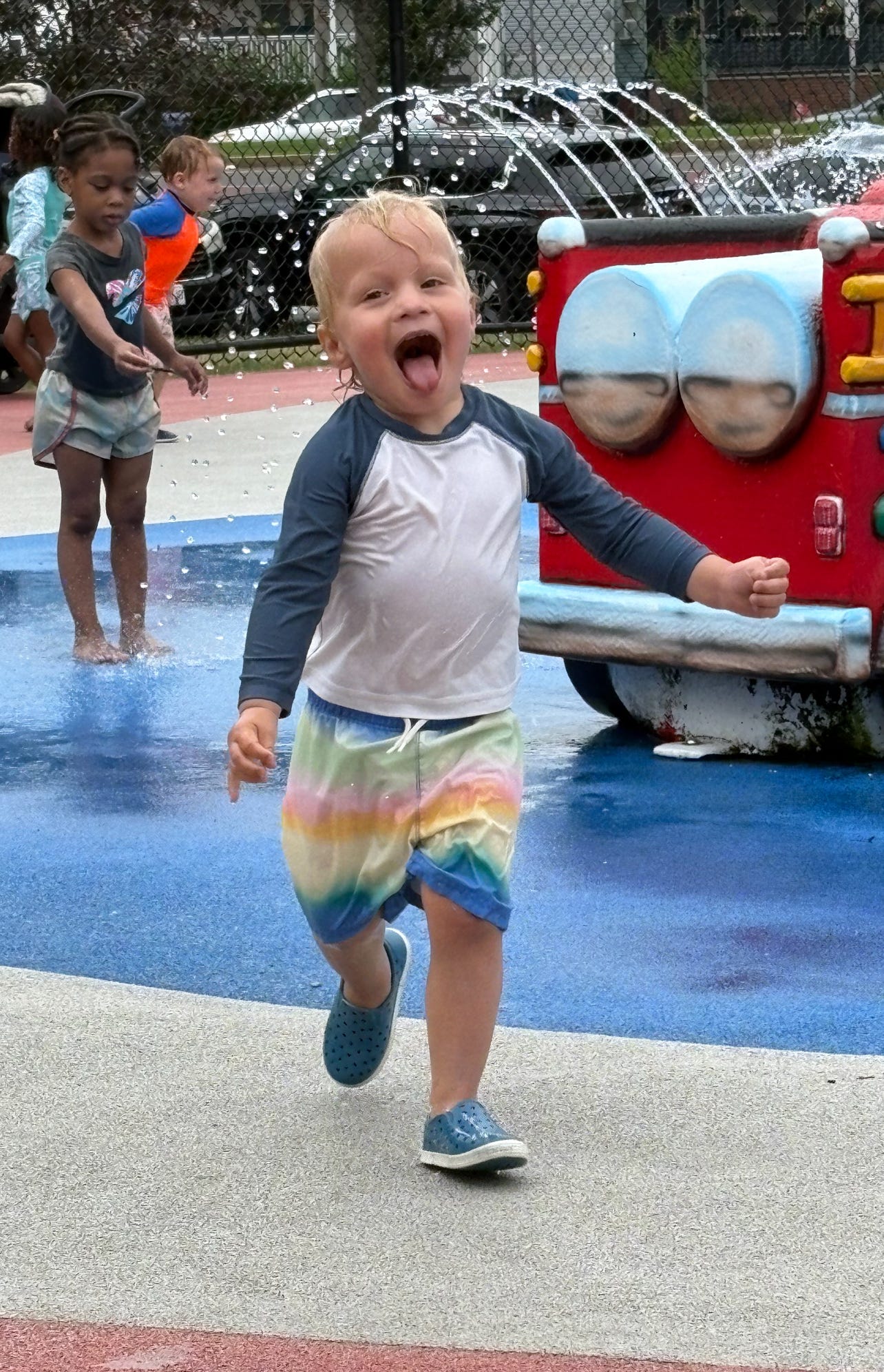Is Your Toddler a Tiny Zen Master?
Parenting, Development, and the Pre/Trans Fallacy
“You are my everything,” I tell him, laying it on thick.
“I am not your everything,” he says, shaking his head.
“Fine, you’re the future.”
“I am not the future.”
“Ok, then you are the past.”
“I am not the past,” he pauses, dead serious, looking at me in the eyes. “I am Asher.”
***
He was right. He is Asher.
His 2.5-year-old brain is so concrete, so literal, that abstractions bounce right off him like Cheerios off a kitchen tile floor.
“Everything”? He knows that’s not true—he’s got trucks, snacks, and many loving grandparents clamoring to give him affection.
“The future”? Sounds suspiciously like nap time in disguise.
I’m reminded of his literalness every time he points at a book and says, “Do the ABCs,” or asks if Pop Pop is stuck in the box (aka, on TV again.)
As adults, we swim in abstractions without even noticing. We think about “meaning,” “purpose,” “legacy,” and “identity” as if they were tangible objects.
But toddlers live somewhere else, down in the bedrock of the now, where “I am Asher” is the only necessary fact.
This is where Ken Wilber’s pre/trans fallacy sneaks in. The gist: there’s a difference between pre-rational innocence and trans-rational wisdom. But on the outside, they can look the same.
A child saying, “I’m not the future. I’m not the past. I am Asher,” is not the same as a Tao master saying, “The Tao that can be spoken is not the true Tao.”
In one direction, we mistake naïveté for enlightenment. In the other, we mistake genuine wisdom for childishness.
The toddler isn’t transcending the mind—he hasn’t even built the full scaffolding yet. But from our sentimental parental perch, it’s tempting to confuse his concrete literalism for mystical insight.
I want to believe he’s channeling some eternal truth about beingness. Perhaps he is tapped into some timeless dimension of reality that we adults have lost touch with. Most likely, he’s just resisting bedtime with egocentric precision.
And yet, he is teaching me something. Even if it’s not enlightenment, it’s a kind of embodied reminder: you can only be what you are, here, now. No future, no past—just Hot Wheels, playgrounds, and the immediate presence of human connection.
My task is to let the unfiltered way Asher sees the world soften me, slow me down, and remind me what matters. The funny thing is that adults pay thousands for mindfulness retreats. Toddlers get there naturally when they see an ant.
For parents, there’s a quiet skill here: laughing when your child makes remarks that sound convincingly like a Zen master while resisting the urge to over-interpret, but also letting yourself be changed by the simplicity your child inhabits. Our job is to help them add complexity as they grow—teach them about time, story, and meaning—without losing the easy, grounded clarity they start with.
For living well, the lesson might be this: hold your abstractions lightly. They’re tools, not truths. And sometimes, the best response to “You are the future” is to shake your head and say, “No. I am Asher.”


